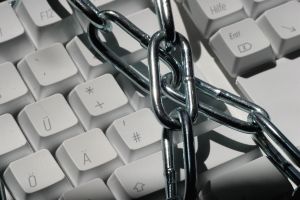 Do you have an anti-virus installed on your PC? If yes, that’s a really good start. But it’s not enough, as viruses are not the only threat. There are lots of ways the security of your computer could be compromised. Luckily, it’s not too hard to make your computer more secure. Here are 5 essential computer security tips that will help.
Do you have an anti-virus installed on your PC? If yes, that’s a really good start. But it’s not enough, as viruses are not the only threat. There are lots of ways the security of your computer could be compromised. Luckily, it’s not too hard to make your computer more secure. Here are 5 essential computer security tips that will help.
1. Update Windows regularly
Windows pushes a lot of updates. In fact, some users turn off automatic updates because they become annoying. And that’s a pretty big mistake because updates are there for a reason. While some of the updates simply implement a new version, most of the smaller updates deal with recent security issues and patch them up. That’s why you should not ignore Microsoft updates and install at least the important ones as soon as they are released.
2. Use a Firewall
Another thing a lot of Windows users do is switch off the firewall because they think that the firewall will interfere with their browsing. That’s not true because basically a firewall lets you do whatever you want while keeping the nasty stuff out. If you like, think of it as of a fence that guards your property.
The Windows firewall provides enough protection for most home users. But you can also use the firewall that comes with your anti-virus or any other third party firewall.
3. Use a password manager
Everybody knows that having long and complicated passwords can help you keep your online accounts safe. But the problem with such passwords is that they are really hard to remember. In the end, a lot of people use the same password for several websites and don’t ever change them. And that’s how they become easy identity theft victims. If you want to use really complicated passwords without the fear of forgetting them, use a password manager like LastPass that will keep your passwords securely encrypted, so that you can use them in one click but nobody else can lay their hands on them.
4. Shred files containing confidential information
Did you know that when you delete a file or a folder, it doesn’t actually get erased immediately? In fact, files can be recovered even if you empty your Recycle Bin. That’s why it’s not really wise to simply hit the Delete key when you are deleting a document that contains your details, such as address, phone number, credit card number, and so on. Using a file shredder to delete files containing your personal information is always recommended because a file shredder will completely overwrite the data and make the file unrecoverable. Software like Easy File Shredder does the job really well.
5. Browse the Web safely
In most cases your common sense is the best weapon against viruses, malware, scams and spam. When you are browsing the Web, make sure you don’t open any suspicious websites, don’t click on suspicious links in your email and don’t download files from untrusted sources. Also install the Web of Trust (WOT) browser add-on. It will show you the reputation of websites when you are going through search results and help you avoid the malicious ones.
Tags: pc security tips


